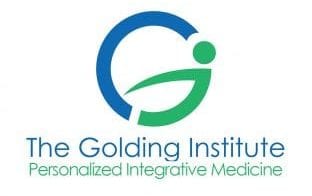
Nutrigenomics
The goal of this module is to equip you with a basic understanding of genetics, but specifically nutrigenomics and nutrigenetics. Highlighting how genetic factors may predispose to disease, and how genetic variation interacts with diet and lifestyle to alter or impact the development or progression of chronic diseases. The field of nutrigenomics offers health professionals an important new tool in their assessment of risk, and in formulating their approach to disease prevention.
The genes we carry significantly impact our health and susceptibility to various diseases. The discovery of prognostic genetic markers is increasing at an astonishing rate, and continues to improve target identification, test accuracy, disease detection and treatment selection.
Nutritional genomics, which studies the genome-wide influences of nutrition, has far-reaching potential in the prevention of diet-related disease. It is highly likely that during this decade the nutritional supplement, food industries and healthcare companies will grow in response to advances in nutritional genomics research and its applications. Parallel to this growth will be impressive progress in understanding the specific influence of certain food components on metabolic pathways and on long-term risk for disease
One of the greatest technological accomplishments of the last 100 years has been the complete mapping of the human genome, first announced in 2003. This has given scientists a greater understanding of the mechanisms of health and disease at a molecular level, forever changing the face of clinical diagnosis and treatment.
The module will cover the following topics:
- Genetic Variants Associated With Heart Health,
- Genetic Variants Associated With Endogenous Antioxidant Genes,
- Genetic Variants Associated With Bone Health
- Genetic Variants Associated With B Vitamin Pathways
- Polymorphisms and Responsiveness to Diet
- Nutritional Influences on Estrogen Metabolism
- The human genome and molecular medicine
- Telomeres and telomerase as natural therapeutic targets
Module learning objectives:
- Students will understand relevant terminology of genetics and nutrigenomics, and aspects of the biology of DNA, especially genetic variation and Single Nucleotide Polymorphisms (SNP).
- Students will understand different types of genetic testing
- Students will understand what is meant by nutrigenomics and nutrigenetics, acquiring knowledge on specific diet-gene interactions, which play a role in processes that impact chronic disease development.
- Students will become aware of the Ethical, Legal and Social Issues (ELSI) of nutrigenetic testing, including privacy and the use of genetic information, informed consent and genetic counseling.
